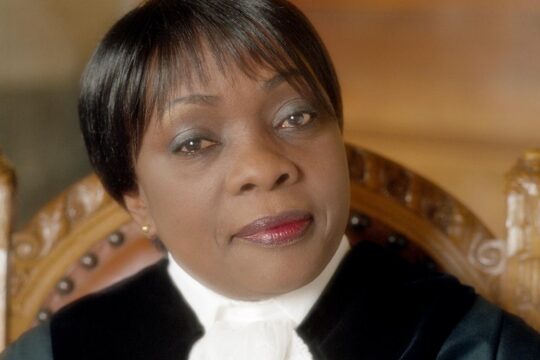The International Criminal Court called for Sudan's President Omar al-Bashir to be arrested on Sunday at a summit of African leaders in Johannesburg.
The African Union conference -- which was to focus on the migration crisis and unrest in Burundi -- now looks set to be dominated by the presence of Bashir, who is wanted by the ICC over alleged war crimes and crimes against humanity committed during the Darfur conflict.
Since his indictment in 2009, Bashir has mostly travelled to countries that have not joined the ICC, but South Africa is a signatory of the court's statutes.
"South Africa has an obligation to arrest him," Johannesburg-based rights lawyer Gabriel Shumba told AFP.
"Failure to do so puts them in the same bracket as other African regimes who have no respect for human rights. It's actually a test for South Africa."
A South African government official at the summit confirmed media reports that Bashir had arrived, but he declined to give further details.
"There's no point denying it now," said official, speaking on condition of anonymity.
The ICC said in a statement from its headquarters in The Hague that it "calls on South Africa... to spare no effort in ensuring the execution of the arrest warrants" against Bashir.
The summit is chaired by Zimbabwe's President Robert Mugabe, who has urged African leaders to pull out of the ICC, but human rights groups expressed outrage that Bashir could openly defy arrest.
"Allowing President al-Bashir into South Africa without arresting him would be a major stain on South Africa's reputation for promoting justice for grave crimes," said Elise Keppler of Human Rights Watch.
"South Africa's legal obligations as an ICC member mean cooperating in al-Bashir's arrest, not in his travel plans," she added.
Darfur erupted into conflict in 2003 when insurgents mounted a campaign against Bashir's government, complaining their region was politically and economically marginalised.
More than 300,000 people have been killed in the conflict and fighting has forced some 2.5 million people to flee their homes, the United Nations says.
Khartoum, however, disputes the figures, estimating the death toll at no more than 10,000.
- Unrest and migration -
Two days of discussions among the 54 member states are set to focus on the political unrest in Burundi and the migration crisis across the continent.
Burundi has been plunged into a period of instability by President Pierre Nkurunziza's push to run for a third five-year term.
Violent protests have left some 40 people dead and 100,000 people have fled the country, raising peace and security concerns in the region.
Other crises such as the threat posed by Islamist militant groups are also on the agenda.
Mugabe and South African President Jacob Zuma are among those scheduled to speak on Sunday.
Also attending is Nigeria's newly-appointed President Muhammadu Buhari, whose country is battling the onslaught of Islamist group Boko Haram.
The leaders of two of Africa's other major economies, Egypt and Angola, are absent.
The summit in South Africa's economic capital comes two months after a wave of xenophobic violence swept parts of Johannesburg and Durban as African immigrants were hunted down and attacked by gangs.
At least seven people died in the unrest, which badly strained relations between South Africa and many countries in the region that complained at the targeting of their citizens.
The subject of xenophobia will be tackled in a closed session on Sunday morning before the opening ceremony.
The session will also discuss migration -- and will likely address the flood of African and Middle Eastern migrants trying to cross the Mediterranean.
Mass drownings have claimed nearly 1,800 lives so far this year, according to the International Organization for Migration.


